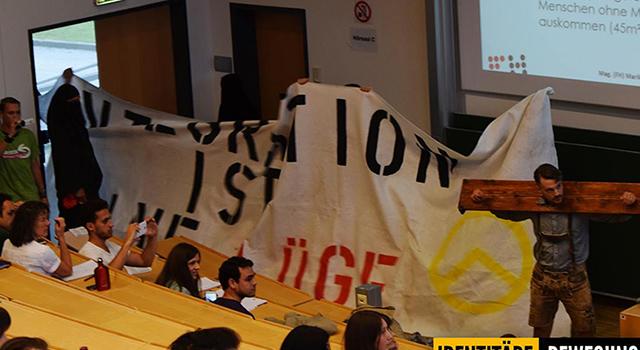Austria: Independent centrist candidate wins Presidential election, ultra-right populist loses

Yesterday’s repeat of the second round of the Austrian presidential elections was won with 51.68 % of the vote by the independent candidate Alexander Van der Bellen. His rival from the populist right-wing Freedom Party of Austria (FPÖ), Norbert Hofer, earned 48.32 % of the vote.
The Austrian Press Association called the election based on preliminary poll results which do not include ballots cast by mail, which will be counted on Monday and, according to the calculations of votes already tallied, will not influence the outcome. There are roughly 700 000 votes by mail anticipated and the ARGE company predicts that after they are counted, Van der Bellen’s lead will rise to 53.3% compared to 46.7 % for Hofer.
During the second round of the elections in May, which were subsequently overturned by the Constitutional Court, voters who cast ballots by mail showed a preference for Van der Bellen. Voter turnout, according to the preliminary final results yesterday, was 64.56 %.
After counting the postal votes, ARGE predicts that a total of 74 % of the electorate will have participated. During the second round in May, which was then annulled, the final turnout was 72.65 %.
Van der Bellen said in his victory speech that his win over the ultra-right populist Hofer demonstrates that most voters have heard Van der Bellen’s call for equality, freedom and solidarity. He also promised he will now focus on bringing Austrian society together, which has been divided by the election.
In his first reaction to the results, Van der Bellen announced that he intends to be a President for all Austrians. Hofer, who has conceded defeat, promised to run for President again in six years.
His defeat deals a hard blow to the ultra-right movement around Europe, which had hoped that after the victory by those opposed to the EU in Britain and Donald Trump’s win in the US presidential elections, the FPÖ in Austria would be the next prize for groups based on criticizing the establishment. Hofer was supported in his campaign by the Alternative for Germany party, by the Dutch Freedom Party of Geert Wilders, and by France’s National Front, run by Marine Le Pen.
Germany, France and the Netherlands will hold elections next year. The comparatively big difference between the votes finally cast for each of the Austrian candidates is surprising.
Pre-election polls predicted a closer contest down to the last minute. In May’s second round of the Presidential election, Hofer was ahead after polls closed, and Van der Bellen only achieved apparent victory after the ballots cast by mail were summed up, which led the ultra-right candidate to ask the Constitutional Court to annul the results, which it did.
The big difference in this final poll has surprised even the victor. In his first interview after the announcement of the preliminary results, Van der Bellen said his wish is that after he finishes his term, people will not talk about him as a President but as “our President”.
For his part, Hofer posted a message to Facebook that: “I am infinitely sad that it didn’t work out. I would have liked to have taken care of our Austria.”
Hofer congratulated his rival and called on Austrians to cooperate with each other and stick together, promising to run for President again in six years and also to run for Parliament again during the next legislative elections. The chair of the ultra-right FPÖ, Heinz-Christian Strache, said in an ORF radio broadcast that his party will not attempt to contest the presidential results through the Constitutional Court again.
Van der Bellen’s campaign expressed a sympathetic approach to migration and support for continuing European integration. Hofer, on the other hand, pushed for limiting migration and the powers of the European Union.
It was precisely the fear that Hofer might cast doubt on Austria’s continued membership in the EU that caused many Austrians to cast their ballots for Van der Bellen, according to many analysts. If nothing happens to change the outcome of the election, Van der Bellen will take office on 26 January.
Austrians will have to get by without a traditional New Year’s speech from the head of state in 2017. The country has been without a President since 8 July, when Heinz Fischer left office.
Van der Bellen is the first Austrian in history to become head of state without being a candidate for either of the big coalition parties, neither the People’s Party (ÖVP) nor the Social Democrats (SPÖ). “This is an historic day, an historic break with the past,” said Austrian Green Party chair Eva Glawischnig.
